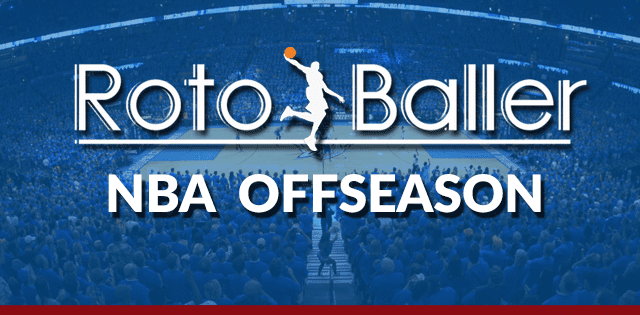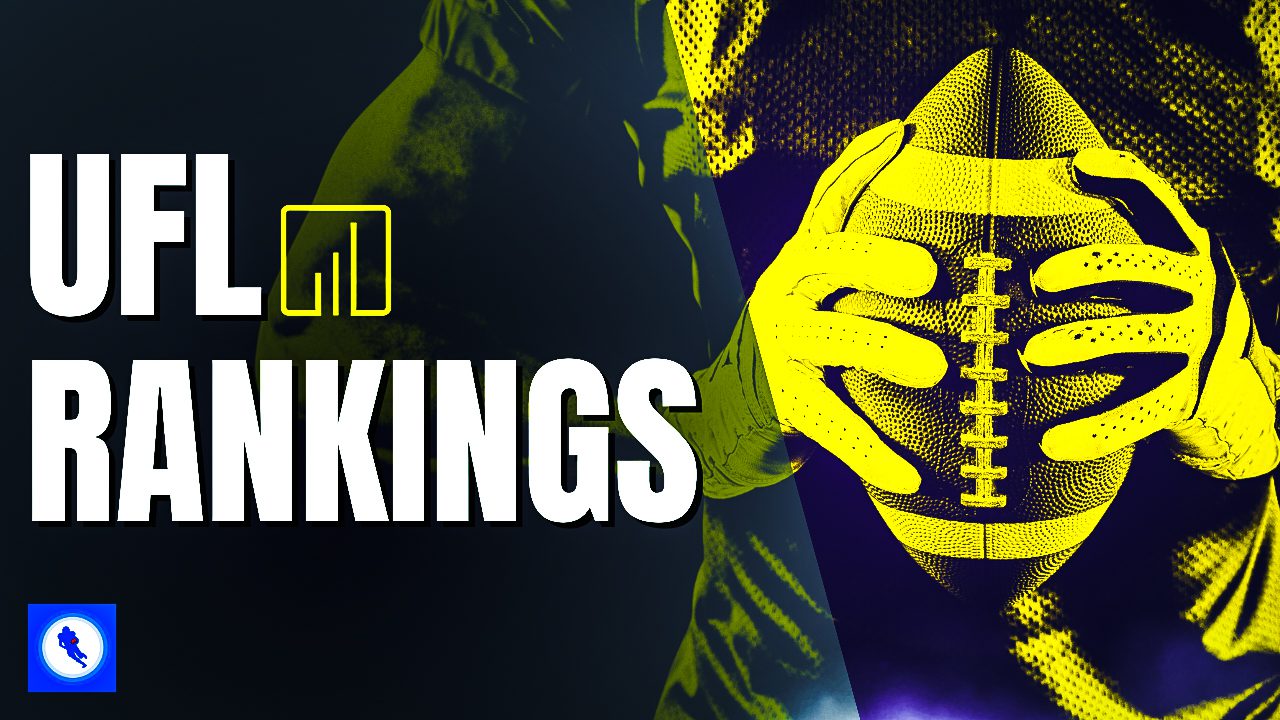
Antonio Losada looks at fantasy basketball stats from players at the Forward positions from the 2021-22 NBA season focusing on players to fade in fantasy drafts for the upcoming 2022-23 campaign based on their most recent outcomes.
We're still weeks away from the regular-season tip-off, and while there is a ton of hype about the incoming rookies, we still need to reflect on the 2021-2022 campaign and what happened just a few weeks and months ago. Things have finally settled when it comes to the NBA offseason timeline so it's time to do some evaluation of the first (nearly) COVID-free year as we prepare for the 2023 season.
When it comes down to facing a fantasy draft, two numbers are often the most sought after by fantasy GMs: current ADP and overall rank from the prior season. No matter how experienced fantasy players are, those two numbers are thought of as the ultimate all-encompassing representations of every fantasy player's value. Knowing what he did in the league the last year and where he is getting drafted this season should be more than enough to make a reasonably good projection going forward, isn't it?
Turns out, those two numbers can be way misleading. Today, I'm here to focus on last season's stats from players labeled as Forwards (SF/PF) in order to assess whether those numbers should be seen as real and solid going forward, or just as outliers with slim chances to be there when all is said and done by the end of the 2022-23 season. I'll be focusing on the latter group, which is comprised of players whose statistics from last season should not be trusted when it comes to drafting them ahead of next year. Let's get to it!
Upgrade To VIP: Win more with our NBA and DFS Premium Pass, get expert tools and advice from proven winners! Jamie Calandro and Dan Palyo lead the RotoBaller team in 2024-25 with exclusive DFS picks, Prop picks and more. Gain VIP access to our Lineup Optimizer, Research Station, DFS Cheat Sheets and VIP Chat Rooms. Go Premium, Win More!
Forwards with misleading fantasy stats worth fading in 2022-23
Kyle Kuzma, SF - Washington Wizards
It's funny that Kuzma appeared in two fewer games last season than he did in 2021... yet he logged 250+ more minutes of playing time. Of course, that makes sense considering he got to start 34 more games in DC than he did in Hollywood after getting traded by the Lakers in exchange for a washed-up Russ. The problem is that Kuzma, no matter the team or role he's ever played or getting handed, has always kind of been the same plain player.
I love Kuz, but I see him for what he is and what he will ever be. The man is only 27 but he seems to be already at his peak. He's consistently averaged a 54% true shooting for five consecutive seasons no matter the fluctuation in his field-goal/three-point/free-throw attempts thanks to random hitting rates at all of those three types of shots.
Kuzma has been good to score as much as 18.7 PPG in 2019... or as fewer as 12.8 a year later in 2020. His rebounds and assists went undoubtedly up in Washington last year as part of a team barren of talent and playmakers, thus forcing him into duties he most definitely won't have to deal with next season, thus lowering his outcomes.
And keep one thing in mind: assists, steals, blocks, etc... rates can vary depending on the role and the context, but turnovers are very much a player-led statistic fully representative of that player's skill set. It's been three years at 12%+ for Kuz and he's coming off a career-high 14.1 TOV% campaign. Just saying.
Saddiq Bey, SF - Detroit Pistons
Every time I am tasked with researching the NBA to try and find guys with dubious stats that to my eyes (and my heart, of course) were perfectly nice, I struggle to write about them. I hate it because I love most of these guys and I want to believe they're for real and will keep improving and putting up numbers. Kuzma (read above) is one. Bey, well, consider him younger Kuz.
Rookie Bey was good because he got tons of opportunities but not much more than that. He was a below-average player on a per-minute basis (0.83 FP/min) and his saving grace was the 27 MPG as part of a ridiculously bad team in Detroit--peep at the number of recent top-10 draft selections. In fact, among rookies in 2021 with 60+ games played, Bey would have led or finished near the top of most statistical categories on a per-36 minutes basis because he was given free rein and then some.
Sophomore Bey was even better than his 2021 version, but of course, he also got to use an above-average number of possessions, his playing time increased from 27 to 33 MPG, and he started all 82 games over the season. No wonder he finished as a top-15 F and top-40 player overall. That volume absolutely demands that, if not more. The problem, once more, was the putrid efficiency he played at on a per-minute basis with a borderline league-average 0.91 FP/min that wasn't very encouraging.
Bey is a good young player and has all of his career ahead. I'm betting on a steady improvement as long as Detroit has the room in the wings to keep giving him daily reps. The statistical increase was there last year but, again, so was the six-minute-per-game increase helping that. The TS% went almost four percentage points down and Bey shot below 40% from the floor with his massive 7.4 3PA a pop saving him even on a good-not-great 34.6 3P%. The playing time can't go any higher and there are more important players (Cade Cunningham, Jaden Ivey) for the future in Detroit at least as they're perceived. We'll see how that goes for Bey, though I'm not very positive about an improvement or even a repeat season.
Devin Vassell, SF - San Antonio Spurs
Vassell is entering his third season in the NBA. His numbers from his rookie year in 2021 to his sophomore season last year increased mightily. Check it out: 61% increase in MPG, 120% (!) in FGA, and at least 54% in all classic statistical categories with a ridiculous 124% increase in PPG included. In other words, Vassell went from playing 17 MGP over 62 games (5-3-1 line) to 27 MPG over 71 (12-4-2-1). That's fantastic! Only, it's not.
Of course, the volume and chances and playing time put Vassell on a select club of just 146 players in the 2022 season who got to average 27+ MPG while appearing in 20+ games. With 30 teams in the league, that comes out to basically five men per team, so even though Vassell only started 31, he could be considered a legit starter on the basis of his playing time. But he would have been one of the worst starters had that been the case.
Vassell's numbers were rather bad for someone with his role. He averaged 24.5 FPPG and a league-average 0.90 FP/min to rank in the 20th percentile among "starters" in fantasy basketball last season. He can't even be considered a specialist like other players in that group such as Evan Fournier (three-point king), Robert Covington/P.J. Washington (all-across-the-board contributors), or Darius Bazley/Jae Crowder (über-talented rebounders/stealers).
The Spurs aren't going to help Vassell in any way next season as the franchise tanks its way toward a certain Frenchman. The minutes and the usage rate might increase even more and into the 30s MPG and 22+ USG% but even then I still don't clearly see Vassell turning into a legit fantasy performer as soon as next season. Let him marinate for a minute.
More Fantasy Basketball Analysis
Download Our Free News & Alerts Mobile App
Like what you see? Download our updated fantasy basketball mobile app for iPhone and Android with 24x7 player news, injury alerts, lineup notifications & DFS articles. All free!

 RADIO
RADIO


























